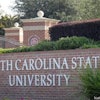NEW YORK
Students looking for jobs on Wall Street may find fewer opportunities when investment banks’ recruiting teams visit campuses this fall.
The gloom and doom in credit markets doesn’t seem to have dulled firms’ interest in finding new talent. But the uncertainty may have led more summer associates to accept full-time offers at such companies as Citigroup Inc., leaving a shrinking number of available positions. After the heated competition for candidates in recent years, the environment now favors employers, not students.
“It’s a reversal of what happened last year, when students were saying, ‘The world is my oyster,'” said Caitlin McLaughlin, head of campus recruiting at Citigroup.
Citigroup has seen a higher number of summer interns accepting full-time offers. Typically, the acceptance rate is 50 percent to 60 percent, but this year it’s in the range of 80 percent to 90 percent, changing full-time recruiting dramatically.
“The challenge will be determining our needs, as we have a significantly higher yield this year than in prior years,” said McLaughlin. The company said hiring across its markets and banking business is similar to last year, when it hired about 450 employees in the division.
The University of California-Berkeley, the University of Pennsylvania and other schools also noticed this change on both the undergraduate and MBA levels.
“Some banks aren’t coming for full-time recruiting, because they filled their class with summer associates,” said MaryEllen Lamb, senior associate director, MBA career management, at the Wharton School.
Despite showing some damage from this summer’s market turmoil, four of the Street’s biggest investment banks reported a third-quarter profit last week. All took a hit in their fixed income operations, but bottom lines remained in the black due to strength in investment banking, equities and global investing.
As of late September, firms were extending full-time offers to summer interns and college seniors, and such companies as Goldman Sachs Group, Bear Stearns Cos. and Citigroup planned to recruit from about 50 campuses across the country the same as in prior years.
Of course, some banks were hurt worse than others this summer. On one end of the spectrum was Goldman Sachs, which reported a 79 percent increase in profit. At the other end was Bear Stearns, which reported a 61 percent decline in third-quarter results on an 88 percent drop in fixed-income trading revenue and $200 million in hedge fund losses.
Bear Stearns continues to recruit and extend offers in the fixed income area, said Pam Kimmet, the firm’s global head of human resources.
The company hired about 400 people in its 2006 entry-level class and expects hiring numbers in both fixed income and equities to be up a little bit this year. “We are not seeing an impact on our campus recruiting program,” Kimmet said.
Bear Stearns has already cut mortgage-related jobs in subprime lending, and said during its third-quarter conference call that mortgage origination jobs could be next.
“We’ll continue to evaluate market conditions and what our staffing needs are as we get a better visibility into what the market’s going to look like, but my guess is that we’ll continue to trim head count there,” the company said during the call.
Things at Goldman are looking rosy as usual, and the company plans to proceed with recruiting as normal. “A market in distress doesn’t mean we’ll change hiring,” said Aaron Marcus, global head of campus recruiting at Goldman Sachs. “There may be different hiring expectations in certain businesses, but that doesn’t change the hiring of thousands.”
Goldman Sachs hired about 1,700 employees globally at the analyst level in 2006. The company doesn’t break new hires down by country.
College officials will have a better idea of market impact on recruiting in mid-November, when companies have extended all full-time offers and switch their attention to recruiting for summer internships.
–Associated Press
© Copyright 2005 by DiverseEducation.com















